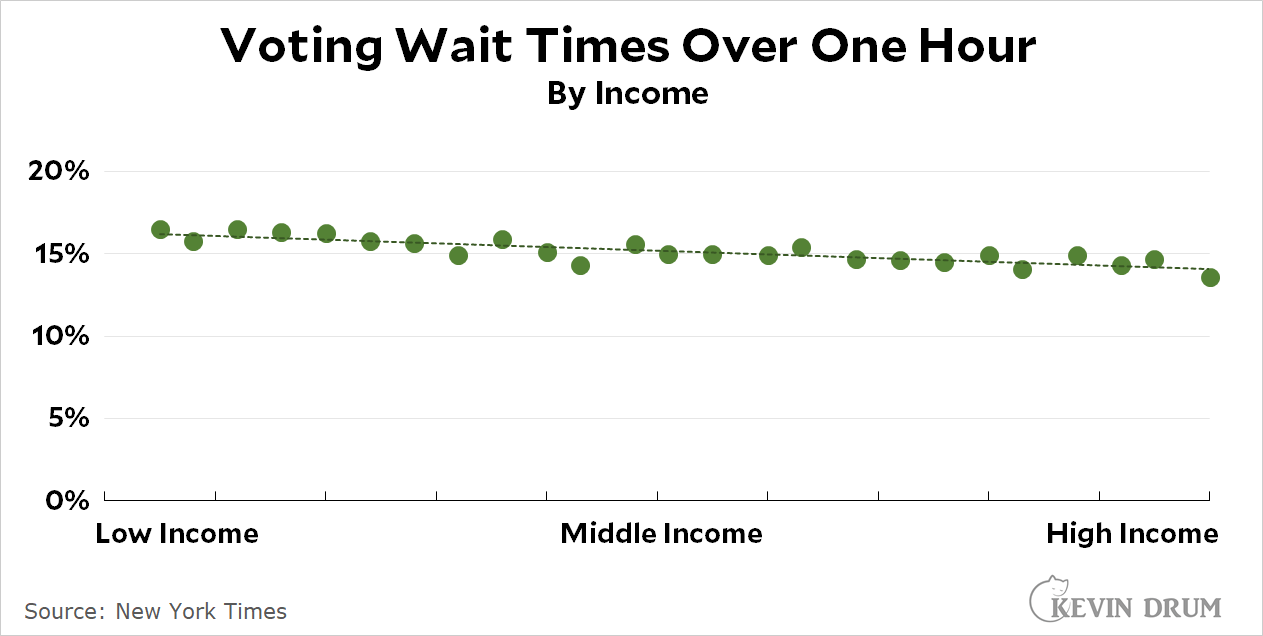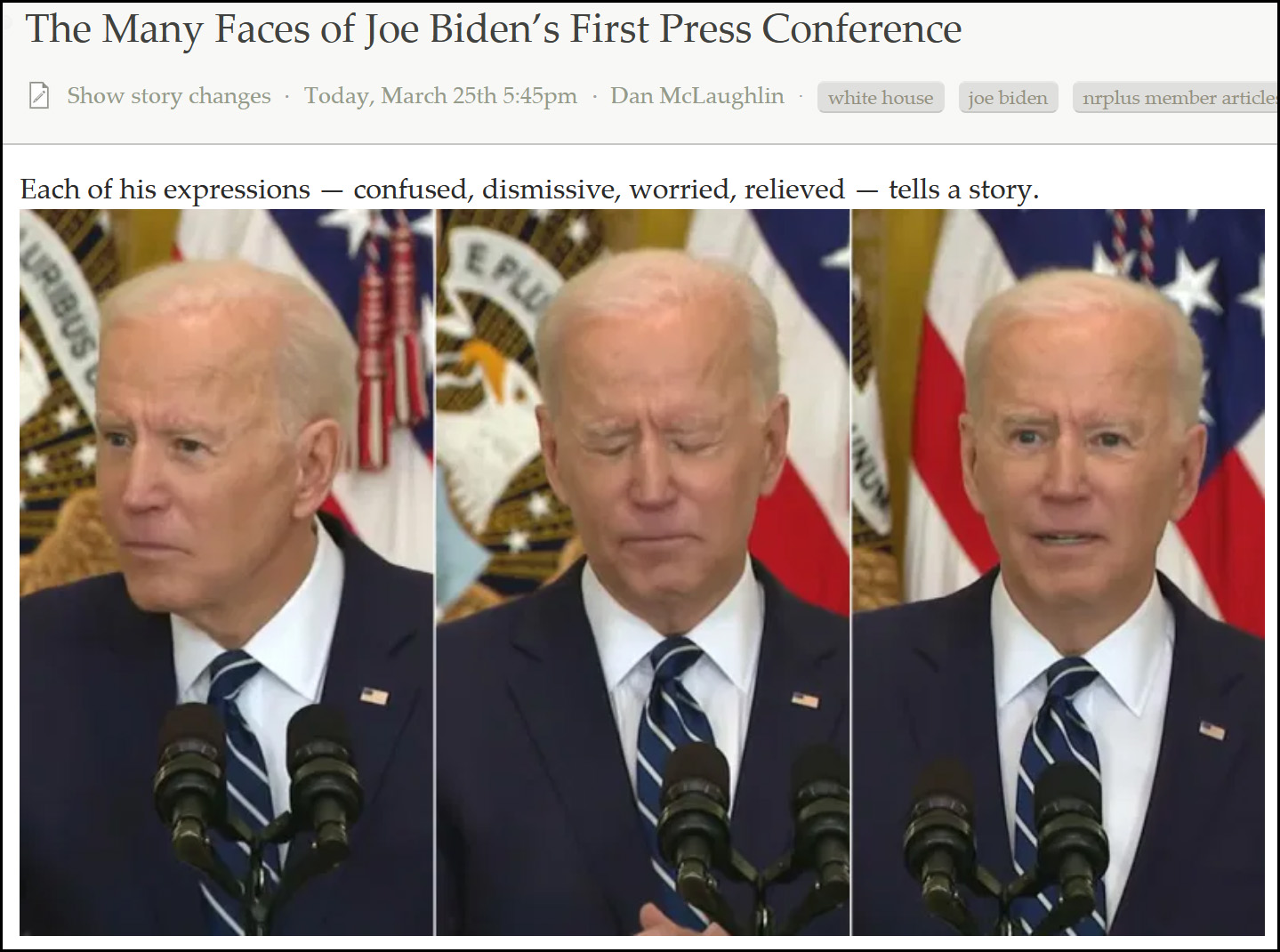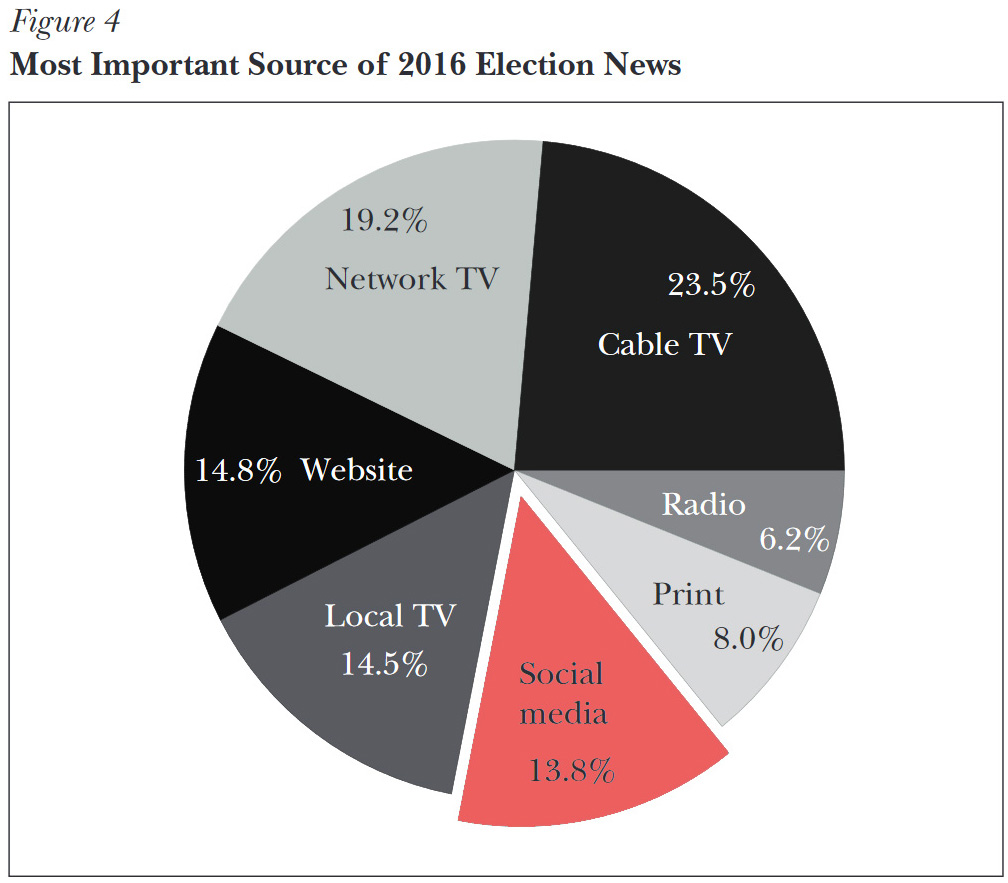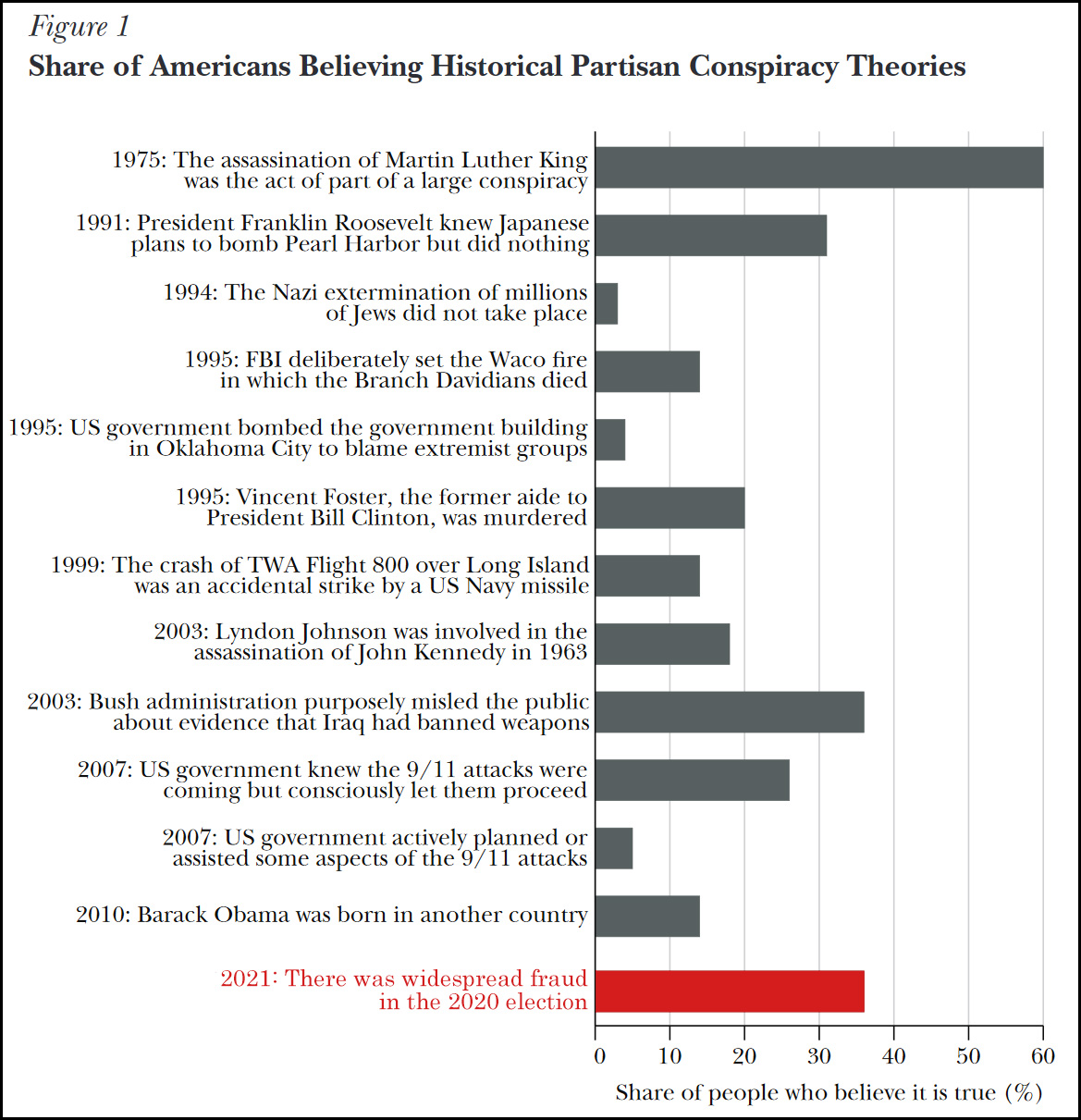Here’s the officially reported coronavirus death toll through March 25. The raw data from Johns Hopkins is here.

Cats, charts, and politics

Here’s the officially reported coronavirus death toll through March 25. The raw data from Johns Hopkins is here.

Georgia has officially passed its "Brad Raffensperger Is a Traitor" Act, which reduces the power of the Secretary of State to oversee vote counting. This was prompted, of course, by Raffensperger's unwillingness to cheat in order to "find" a few thousand more votes for Donald Trump, something that horrified Georgia's Republican Party. To prevent this from ever happening again, the bill removes the Secretary of State as chairman of the State Election Board and instead makes it a position that's appointed directly by the state legislature. This should ensure that the head of the board can be expected to toe the party line in future elections.
The bill does a whole bunch of other hideous stuff too, which Ari Berman outlines here. Among the weirder provisions is one that prohibits people from handing out water to people who are in line to vote. Seriously.
But why? This is so obviously malicious that it makes Georgia look like a goon state. It might not be Bull Connor and his firehoses, but it sure has the amateur-hour flavor of old-school Jim Crow. You can almost imagine a passel of good ol' boys chewing the fat when one of them says, Hey, I heard that colored folks dehydrate faster than white folks. Maybe we should take away their water. Everybody guffaws, and then the stupidest one of them adds it to the bill.
What's more, it probably accomplishes almost nothing. Take a look at this:

These are national numbers, but I don't suppose Georgia is very much different. What it shows is that even in very low-income neighborhoods, only about 16% of voters wait more than an hour in line—and it drops to almost nothing above 90 minutes.
This is nothing to be proud of. Anything over 30 minutes ought to be a source of shame. Nevertheless, there really aren't all that many people who are in line so long that a lack of water is going to send them panting home. In fact, what will probably happen is that Democrats will mount a big publicity campaign around water and everyone will show up with water bottles from now on, waving them in the faces of the Republican poll watchers. Republicans will be embarrassed forever by this show of idiocy and Democratic turnout will probably go up.
Of course, the Georgia bill also gives the (extremely Republican) State Election Board the power to take over "underperforming" county boards like, say, the (extremely Democratic) board of Fulton County, home of Atlanta. So maybe they don't have to care about Democratic turnout at all. If it's too high for their taste, they just need to declare a few counties underperforming and then push it down to whatever turnout they need. Vladimir Putin would be proud.
Joe Biden held a press conference earlier today, and by all accounts it was fairly normal. I watched it, and aside from a fumble during Biden's answer about the filibuster, it was about what I expected: The questions were mediocre, Biden's responses were unexceptional, and then it was over. Just another day in Washington DC.
But Republicans are apparently still hellbent on insisting that Biden was mere moments away from total infirmity. Here is National Review:

Elsewhere, Sean Hannity is kvetching that Biden referred to notes for some of his answers, apparently on the supposition that Biden was just being wheeled out as the public face of an administration that he's too senile to actually run himself. Down in the fever swamps, the big question is who's really running the White House these days? Kamala Harris? Bernie Sanders? The ghost of Karl Marx?
It never ends. And we still haven't heard from Donald Trump yet. I can't wait.
In the previous post I said I was "prowling around" looking for something else when I happened to come across that chart about conspiracy theories. So what was I looking for?
Answer: the impact of Facebook on elections. There are plenty of studies about the impact of Fox News on elections, all of them showing a fairly significant effect, but hardly any about social media. It's obviously too early to expect anything about the 2020 election, but Facebook was front and center during the 2016 election and there ought to be some research about that.
 But there isn't. This is why I was interested in the paper by Hunt Allcott and Matthew Gentzkow, which looked at the impact of fake news on the 2016 presidential election. They are forced to make some fairly heroic assumptions along the way, but in the end here's what they say:
But there isn't. This is why I was interested in the paper by Hunt Allcott and Matthew Gentzkow, which looked at the impact of fake news on the 2016 presidential election. They are forced to make some fairly heroic assumptions along the way, but in the end here's what they say:
The average Fake article that we asked about in the post-election survey was shared 0.386 million times on Facebook. If the average article was seen and recalled by 1.2 percent of American adults, this gives (0.012 recalled exposure)/(0.386 million shares) ≈ 0.03 chance of a recalled exposure per million Facebook shares. Given that the Fake articles in our database had 38 million Facebook shares, this implies that the average adult saw and remembered 0.03/million × 38 million ≈ 1.14 fake news articles from our fake news database.
....As one benchmark, Spenkuch and Toniatti (2016) show that exposing voters to one additional television campaign ad changes vote shares by approximately 0.02 percentage points. This suggests that if one fake news article were about as persuasive as one TV campaign ad, the fake news in our database would have changed vote shares by an amount on the order of hundredths of a percentage point. This is much smaller than Trump’s margin of victory in the pivotal states on which the outcome depended.
I suspect that even this overstates the influence of Facebook since that "average" of 1.14 fake news articles is almost certainly skewed heavily toward pro-Trump voters. I'd guess that the average MAGA voter saw dozens of fake news articles on Facebook while everyone else saw an average of about zero. Thus, they were seen only by people who were already committed to Trump regardless.
In any case, what little evidence I've been able to piece together is consistent with the conclusions from Allcott and Gentzkow: the impact of disinformation on Facebook is quite small. Hopefully we'll get a better look at this over the next year or so as studies of the 2020 election are published.
Are Americans more prone to believing conspiracy theories than they used to be? I was prowling around looking for something else when Alex Tabarrok sent me a link to a paper that happened to contain this chart. I have extended it to include the belief that the 2020 election was stolen:

The belief in election fraud is high, but hardly unprecedented. In fact, given that Fox News, the president of the United States, and half of Congress spent months blanketing the airwaves with accusations of fraud, it might even be considered sort of moderate.
In any case, it doesn't appear that there's any secular increase in the American belief in conspiracy theories, and there's other evidence that points in the same direction. Just thought you might be interested.
This picture was taken just days before the Big Shutdown in 2020. I think we could all use a midnight taco right about now.

I just woke up, but I gather that President Biden managed to hold an entire press conference without keeling over or forgetting his name. Remarkable.
Here’s the officially reported coronavirus death toll through March 24. The raw data from Johns Hopkins is here.

An updated company analysis of the coronavirus vaccine developed by AstraZeneca and the University of Oxford showed that the two-shot regimen was robustly effective — 76 percent at preventing symptomatic illness — according to a news release from the drugmaker late Wednesday.
....AstraZeneca and Oxford’s announcement Monday that their vaccine was 79 percent effective in a 32,000-person trial in the United States buoyed the company’s stock price and impressed government officials.
So when you include the latest test results, the AZ vaccine is 76% effective instead of 79% effective.
There's a wide consensus that AstraZeneca screwed up yet again by announcing the higher number before updated results were available, and I suppose that's true. At the same time, I have a hard time believing that NIH really needed to make a public scandal out of this. It's difficult to see what the point was.
I would love to read some deep reporting on AstraZeneca's vaccine development. It seems like there were enough screwups along the way to make a pretty good story. I wonder who has the background to tell it?
Some economists think that we're running the risk of overheating the economy due to the huge amount of stimulus spending that Congress has approved. Maybe so. But how will we know? What exactly is a sign that the economy is ready to spiral out of control?
The New York Times asked ten economists about this and their answers were surprisingly vague. Olivier Blanchard, former chief economist of the International Monetary Fund, literally just shrugged. Apparently his view is that he'll know it when he sees it.
But not me! I'll put a marker down:

If core PCE inflation is over 3% and and 5/5 inflation expectations are over 4% for a full year, then we've overheated. There's nothing magical about these numbers, but they seem reasonable to me.
It's worth acknowledging something, though. An awful lot of progressives take the attitude that, hey, there's no real danger here. If we overheat, the Fed knows how to bring inflation down. We'll be OK even if we do go a little too far.
And that's true. The problem is that the Fed's method for bringing down inflation is to engineer a recession. This is not exactly cost free, and the cost is paid primarily by the working class. So even if you think the current stimulus is OK, it's still worth it to keep the economy reined in enough that the Fed doesn't have to bring things to a grinding halt.